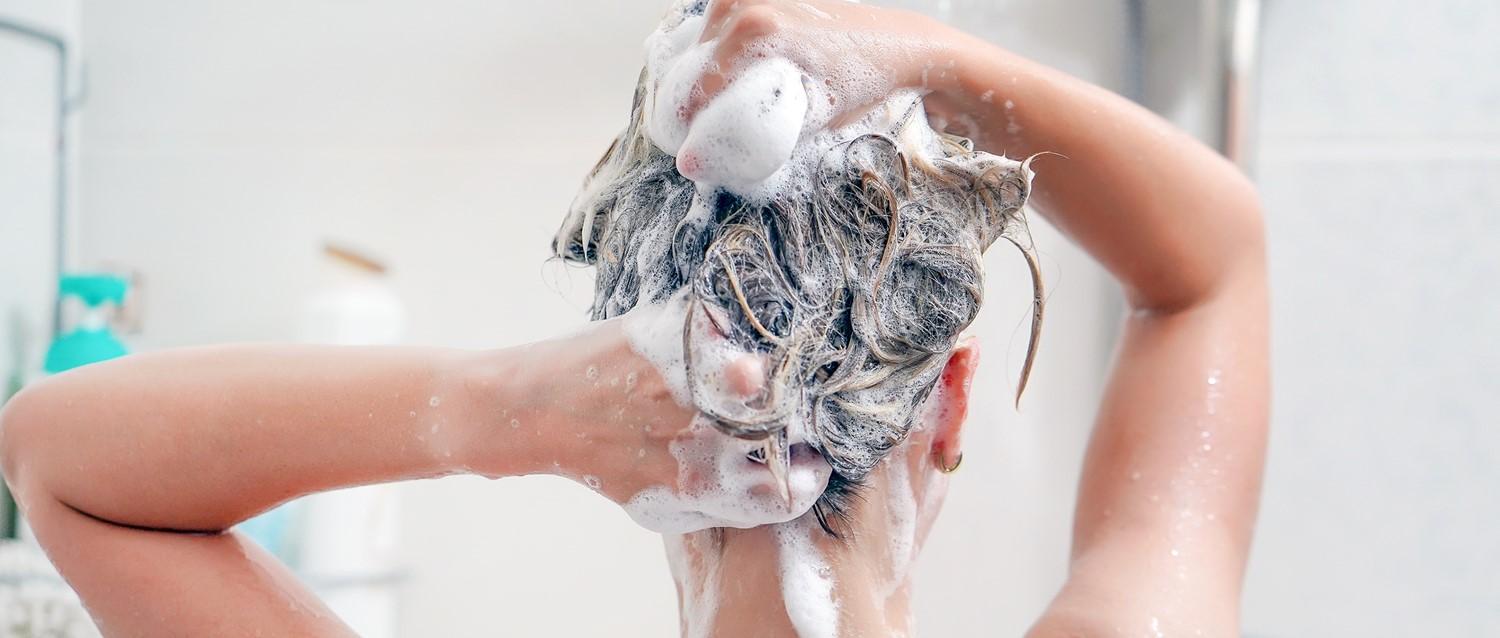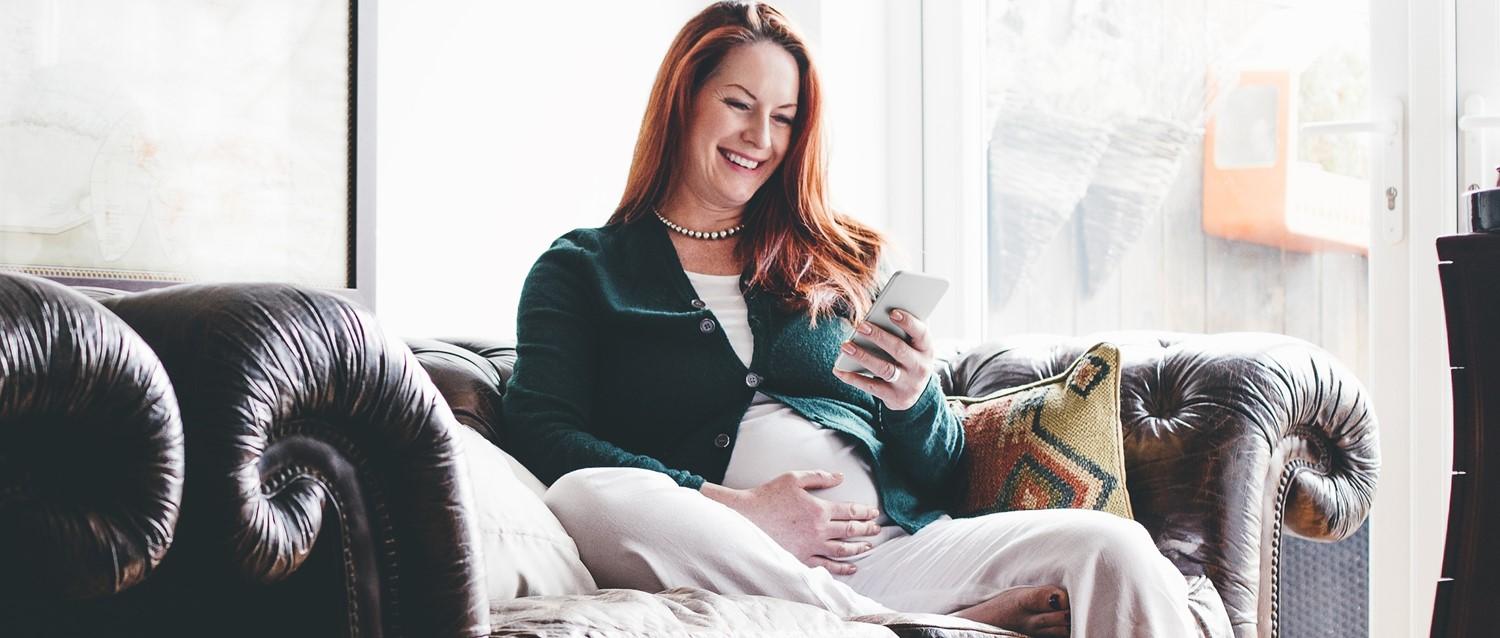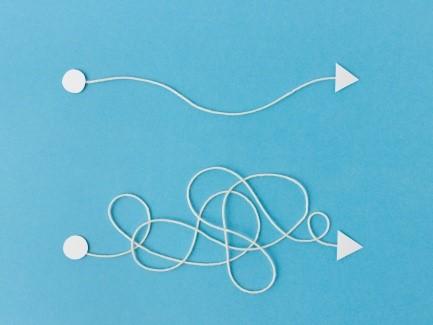
Comment faire face à la perte de cheveux après la naissance d'un enfant ?
Révision par les pairs : Dr Krishna Vakharia, MRCGPDernière mise à jour par Lydia SmithDernière mise à jour le 6 juin 2023
- TéléchargerTélécharger
- Partager
Your body goes through many changes during pregnancy and after you give birth. Although your hair probably isn’t your biggest concern, it can be worrying to see more of it falling out in the months after you give birth. However, this is normal - and something many women experience.
Dans cet article :
Poursuivre la lecture ci-dessous
Why does your hair change during and after pregnancy?
The average person loses up to 100 hairs a day, but not all at once, so it’s not usually very noticeable. When you’re pregnant, however, your body has higher levels of the hormones oestrogen and progesterone, which prevent those hairs from falling out. Some studies suggest the hormone prolactin also leads to less hair loss and more growth, making your hair look and feel thicker1.
After pregnancy, when your body no longer has to support your baby, your hormone levels drop and the hair sheds. However, you’re not actually losing more hair than normal. It’s just that your hair is falling out in larger clumps than it ordinarily would, so it can seem more obvious.
Dr Leila Asfour, a dermatologist at the British Association of Dermatologists, says women may notice an increase in hair shedding and thinning in general over the whole scalp, called telogen effluvium.
"This is due to changes to the hair cycle, which causes the hair to fall out faster than it normally would,” she explains. “It tends to occur around three or four months after having their baby."
Over time, the hair cycle tends to return to normal, although this can take several months."The majority of women do not require any treatment for hair loss after a pregnancy as the hair cycle will eventually go back to normal without any treatments," says Asfour.
Postpartum hair treatments for hair loss
Unfortunately, there are no treatments to prevent or slow down the hair shedding process. However, there are treatments you can try to make your hair appear thicker and healthier.
Use volumising haircare products
Volumising shampoos and conditioners can make your hair look and feel thicker by adding body to it. These products won’t stop your hair from shedding or make it grow faster, but they may improve the look of your hair.
Bien manger
Food shopping and cooking may be the last activities on your mind when you’re looking after a newborn. However, eating a diet with a variety of fruits, vegetables, fibre, and healthy proteins will make sure you’re getting all the vitamins and nutrients you need, which will keep you and your hair healthy.
Eating well doesn’t have to be too complicated or time-consuming. Avocados and eggs are a good source of protein and healthy fats, which boost your skin and hair health2. If you’re short on time, smashed avocado and poached or scrambled eggs on wholegrain toast is a quick, filling meal.
The nutrients zinc and selenium are also important for healthy hair. You can find zinc in fortified cereals, wholegrain bread, nuts, red meat and chicken. Selenium is found in pork, beef, turkey, chicken, fish, shellfish and eggs. Vegetarians can get selenium from spinach, green peas, beans and potatoes. A jacket potato with beans and some veg on the side is another easy, quick meal.
Take vitamins or supplements
Although no specific vitamins have been shown to affect hair loss, they can help support your overall health. "Other things to consider during and after pregnancy which can impact hair growth include women's thyroid function, iron levels, vitamin D, zinc, and vitamin B12 - also known as folate," says Asfour.
"Boosting these can support the overall hair health. After having their baby, women can become iron deficient, so it is important to check these levels during and after pregnancy."
Use the right contraceptive
Women often start contraception after pregnancy, but Asfour says it’s worth being aware that certain contraceptives can make hair shedding worse3.
"We would recommend a contraceptive with a low androgen index if possible, avoiding the progesterone-only ones if appropriate," she says.
Sélection de patients pour Les complications de la grossesse

Grossesse
Comment faire face aux douleurs de l'aine et du bassin pendant la grossesse ?
Il faut s'attendre à des douleurs pendant la grossesse. Après tout, vous êtes en train de faire grandir un bébé - et le processus peut faire des ravages sur votre corps. Les douleurs autour du bassin peuvent être particulièrement inconfortables et rendre difficiles des tâches aussi simples que monter les escaliers. Mais quelles sont les causes des douleurs au niveau de l'aine et du bassin pendant la grossesse et que pouvez-vous faire pour y remédier ?
par Lydia Smith

Grossesse
Complications de la grossesse
La grossesse est un événement humain normal et, heureusement, la plupart des grossesses se déroulent sans problème. Dans certains cas, cependant, des problèmes et des complications peuvent survenir. Ce dépliant énumère brièvement certains des problèmes qui peuvent compliquer la grossesse et propose des liens vers d'autres dépliants où vous pouvez obtenir plus d'informations.
par le Dr Hayley Willacy, FRCGP
When should you speak to your doctor about hair loss?
"If hair loss persists for more than six to eight months after giving birth, then this could indicate a hair disorder and medical treatments might be necessary," says Asfour. "We would recommend speaking to your GP or arranging to see a dermatologist with an interest in hair disorders."
It’s also important to make sure there isn’t an additional cause for your hair loss, such as an infection or stress4.
Poursuivre la lecture ci-dessous
Pour en savoir plus
Historique de l'article
Les informations contenues dans cette page ont été évaluées par des cliniciens qualifiés.
6 Jun 2023 | Dernière version
6 Jun 2023 | Originally published

Demandez, partagez, connectez-vous.
Parcourez les discussions, posez des questions et partagez vos expériences sur des centaines de sujets liés à la santé.

Vous ne vous sentez pas bien ?
Évaluez gratuitement vos symptômes en ligne